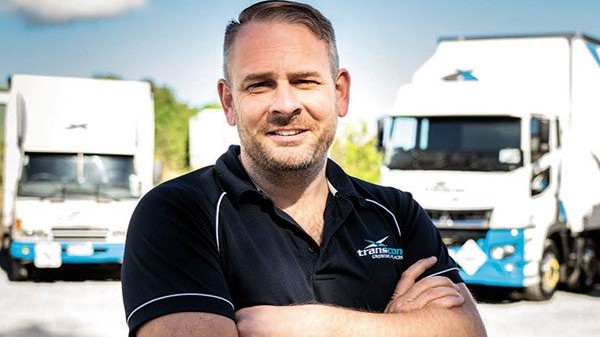
Transcon’s Blake Noble looks at the Easter road toll and why driver education is so important.
I was recently asked to comment on the Easter weekend road toll, which again surpassed expectations and garnered media attention for all the wrong reasons – tragedy rather than holiday festivity. Seven people died in the four days, our worst Easter in three years.
At the time, my initial commentary focused on the increasingly two-tiered roading network emerging nationwide. There are the modern, well-designed, expansive sections of the likes of Orewa to Warkworth, the Waikato Expressway, Transmission Gully, the Christchurch Southern Motorway extension, and then that category of ‘also rans’ lurking at the very end of the exceptional pieces of roading outlined above. You know the roads – where a mere coat of paint separates opposing road users from each other, offering little to cushion the impact of a fellow driver’s poor decision, challenging conditions, or sheer incompetence behind the wheel.
Upon thinking about this further, though, two things emerged – first, our individual risk profile and consequential driving manner, and, second, what I’ll term the ‘outlier’ effect.
In the case of the first, there’s no denying that, as with an array of other fatality-measured activities, such as drownings, our disposition to risk and safety plays a significant role.
What I may personally view as safe conduct may be quite the opposite to the driver following me as though they’re determined to hitch a ride on my towbar, yet here we are attempting to cohabitate at 100km/h in the tight confines of a highway.
It’s the ‘outlier’ effect I’m more interested in today, though. The term emerged from a book entitled Outliers by Malcolm Gladwell. After observing humans in a range of pursuits, the author perceived a situation where those who had committed 10,000 hours or more obtained a level of mastery difficult to achieve without such time spent. This mastery put those 10,000-hour-plus disciples of the task in another league, and these he deemed outliers.
In the book, the references relate to professional athletes, academics and the like. But the ability to apply this logic to more mundane tasks, such as competently controlling a car at 100km/h, still rings true.
Think about it this way – as a professional driver, you’re likely spending north of 40 hours per week on the road in all manner of conditions. In doing so, you’re potentially gaining eight times the amount of experience and exposure as someone whose only time behind the wheel each day is a 10-minute urban commute to work and a trip to PaknSave on a Sunday.
More than that, though, you’re likely to be driving on a variety of roads, exposed to differing hazards, and resultantly learning how to cope with a far wider range of events and scenarios on which to call when things do have the potential to go a little pear-shaped.
Take this very situation I was exposed to while travelling over Easter myself … Amid a row of convoying tractors travelling between farms, a John Deere perched directly in front of me indicated its intention to turn right. An impatient youth in the vehicle to my rear saw the tractor slowing as his opportunity to pass, not even considering what was about to occur.
To this day, I can’t work out how the said youth wasn’t propelled sideways as he pulled into the path of the turning tractor, but suffice to say, the car stopped a short distance down the road, presumably to change his undies and do a quick stock take of his blessings!
It was a crystal-clear example of a lack of experience jeopardising so many people’s safety. I also know I’m not alone in my experience, and countless readers have tales like this. Sadly, many with far more tragic consequences.
The saying goes that “good judgement comes from experience, and experience comes from bad judgement”. There’s been much dialogue, particularly from the likes of industry supporter Greg Murphy, about much greater emphasis being placed on our driver education system and truly equipping us all a whole lot better from the outset. Until we take driver education as seriously as the true risks we all know exist with it, I fear we’ll continue to see more of these records being broken.
And that’s definitely not an occasion where we want to be an outlier.


